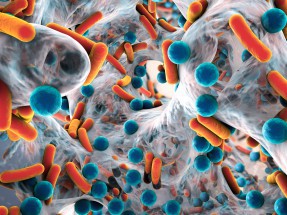Dutch cabinet allocates €200 million to Holomicrobiome
2024-03-15

The Dutch cabinet has allocated €200 million from the National Growth Fund to the Holomicrobiome initiative. This was announced today on the website of Holomicrobiome. The funds will serve to stimulate research into the microbiome and the economically interesting applications thereof.
The role of microbiomes to humans
Communities of micro-organisms such as bacteria, fungi, and viruses - coined under the umbrella term "microbiome" - are essential to the health of people, animals, plants and the environment. Research at MiCRop (who will also profit from this investment) applies the concept microbiome to plants, in order to make our food crops better prepared against environmental stress. In MicroHealth, an extension of MiCrop, the research focus lies on the medical benefits to humans of food grown from different microbiomes.
New microbiological applications can range from more environmentally friendly crop cultivation methods to improved animal feed, and from healthier nutrition to reduced antibiotic use. Some of these microbiological applications may replace traditional chemical-based approaches.
The cabinet allocated the funds on the advice of the independent National Growth Fund Advisory Committee. In its advice, the committee highlighted the economic and social potential of the microbiome as a research field, the strong scientific starting position of the Netherlands in this field, and the innovative cross-domain approach with tight involvement of the business community.
Holomicrobiome Initiative
The Holomicrobiome Initiative is an initiative supported by many knowledge organisations, companies, and NGOs with a keen interest in knowledge, research and innovations into the microbiome. The initiative aims to take a strategic lead in this field of science which is expected to become bigger, more important and more profitable worldwide in the coming decades.
The initiative is unique worldwide because it brings together and integrates microbiome research from all scientific domains and business sectors within one Institute. At present, microbiome research is spread across separate medical, veterinary, agricultural and water-oriented domains.
